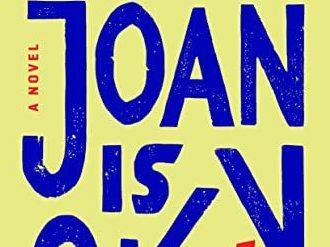Section Branding
Header Content
'Joan Is Okay,' explores the meaning of home, having roots
Primary Content
Versatile and overused, the colloquial "okay" conveys a wide range of expressions: an acknowledgment of one's well-being, an attitude of either support or indifference, a polite decline of goodwill offered, or an affirmation of someone's resilience.
Universally adopted, the term "okay" can seem both plain and mysterious, like in the case of Weike Wang's titular heroine in Joan is Okay.
Joan is a Chinese American doctor who feels most at home when at work. Wang's inside joke — in keeping with the world's exhausted and exhaustive use of "okay" — is to present Joan as an old stereotype: mousy, industrious, inscrutable, asexual. Joan's supervisor both admires and begrudges her robot-like dedication, "brilliant and potent, but with no interests outside work and sleep."
At the beginning of the novel, Joan appears pokerfaced after receiving news from China that her father has just died from a stroke. She takes Friday off to fly across the globe for his funeral, then comes right back to work the following Monday. The novel, in illustrating Joan's seemingly detached personality, satirizes the post-Enlightenment concept of self-determination as a blinkered worldview that actually impairs, rather than promotes, self-awareness. Reese, Joan's colleague, whose Teutonic image on the hospital's information brochure exudes strength and commitment, doesn't understand why his "reasonable" demand for sleep and holiday leave should hinder his career advancement. Mark, Joan's neighbor, while well-intentioned, holds facile assumptions about race, culture, and gender that prevent him from seeing Joan on her own terms.
Almost everyone Joan encounters would try to teach her how to live. To them she is an Eliza Doolittle, or a petite Frankenstein's monster, unformed but full of promise.
But Joan, whose name evokes "God's grace" in its subtle reference to her 15th century namesake, prides herself in being an unobtrusive but critical component in a well-run system — a 5-ft. tall maestro who orchestrates breathing machines and brings order to the daily chaos at a New York hospital's medical ICU wing. As a teaching physician, Joan humbly compares herself to a "standardized" vessel, protected by emotional discipline and years of accumulated knowledge.
While Joan's ideal of medical efficacy seems closer to machine than the Romantic notion of freewill, it helps her appreciate her staff's core humanity: "If learning required mistakes, then teaching required watching different people make the same mistakes. Teaching was relentless déjà vu but grounding. It cemented the idea that we are all the same — height and weight did not matter, and the possibility of failure or (success) for anyone was never too far off."
Joan's belief in the universality of human resilience renders fluid the borders between native and other, home and exile, American Dream and Chinese Dream. In embracing medicine as her true home, Joan resists people's limited view of her as a cultural outcast. Likewise, her parents do not consider their condition of exile to be permanent. After years of struggle in an unyielding America, they return to China as soon as Joan goes off to college, and in time to establish themselves as members of Shanghai's upper-middle class.
Despite her parents' propitious homecoming and eventual success, their past sacrifices in what many often assume as the land of opportunity remind Joan of Ernest Hemingway's The Old Man and the Sea, in which Santiago's dead, shark-infested marlin symbolizes the onerous American Dream.
But Wang's novel, in a way, is a sly correction of Hemingway's tragic individualism. Even at the novel's outset, Joan has already achieved her American Dream, and her parents have regained their Chinese Eden.
Throughout the novel, when thinking about her deceased father, Joan often meditates on the homonymic chuàng, which — depending on the tone — can mean either 创 "to create something that never was, to forge a new path, to innovate," or 闯 "breaking down barriers and charging through." By espousing a pragmatic, resolutely untragic concept of agency as embodied by both meanings of chuàng, Joan at once pays homage to her father's legacy and affirms her Hippocratic oath.
Set during a six-month period from September 2019 through March 2020, Joan is Okay takes the reader through the inevitable rise of COVID in New York City, deftly showing the parallel between Joan's present calling and her parents' past labors. To be an effective physician in a pandemic is similar to being a hardy immigrant in an adverse environment: One must learn to go with the flow, put others before one's needs, accept suffering, and nurture hope.
By exploring the spectrum of commitment — from doubts about one's career and cultural identity, as depicted in Wang's debut novel Chemistry, to a deep passion for one's calling that seems tantamount to faith in Joan is Okay — Weike Wang has shown us myriad ways to build a sense of home, myriad ways to feel okay in our skin.
Thúy Đinh is a freelance critic and literary translator. Her work can be found at thuydinhwriter.com. She tweets @ThuyTBDinh.
Copyright 2022 NPR. To see more, visit https://www.npr.org.
Bottom Content

